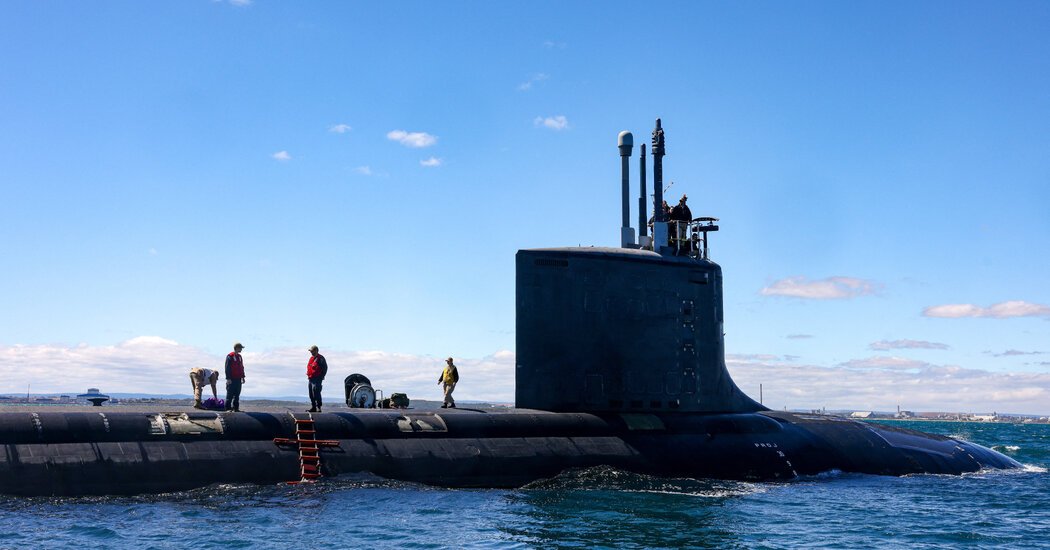Physical Address
304 North Cardinal St.
Dorchester Center, MA 02124
Physical Address
304 North Cardinal St.
Dorchester Center, MA 02124

Australia is one of America’s closest allies; both countries have fought alongside Each other in every major conflict since World War I. Jake Sulivivan, former President Joe Baiden National Security Adviser, cited In January, the two had effectively concluded a “strategic marriage”.
Recently, however, the Australians are rather felt like a spouse who woke up one morning to find a complete stranger next to them. Many have watched, excited about President Trump’s other long -lasting allies, such as Canada and Europe, endangering their economy with hollow tariffs and doubting the US commitment to protect NATO members.
Australia itself was shot down this week at a 10 percent tariff for exports to the United States, as well as 25 percent tariffs for steel and aluminum tariffs. Prime Minister Anthony Albanian on Thursday cited Moving “would be the consequences of how Australians see this relationship”.
All of this makes the Australians look hard with mutually interconnected and dependent military relations with the United States – even if China makes its growing military force in the region – and ask if they need a “plan B”.
“We are dealing with very different America,” said former Conservative Prime Minister Malcolm Turn Bull in an interview. “We are dealing with America whose values are no longer in line with ours.”
As the number of 27 million people stretches over the geographical expanse of the continental America, Australia has always relied on a strong partner for its protection – first in the UK, then the United States.
In recent years, Australia has become an integral part of the US military posture in the region to fight China’s growing confidence. The US Marine regularly turns through the northern part of Australia, the US submarines are attached to them in the west, and the government signed an agreement of 2021 with Washington and London, known as Avsus to equip Australia with nuclear submarines for the next decade.
But now some are questioning whether there are still assumptions that are still at the heart of these measures, given Mr. Trump’s “America First” position. Can Australia rely on the United States to stay in the time of need, and can Australia continue to be militantly treating its American ally if it does not significantly agree with the world?
“We really need to review our thinking about the United States as a country,” said John McCartie, formerly the Australian Ambassador to the United States.
Mr Turnbull, whose term of office covers with part of Mr Trump’s first term, convened this week in the capital’s Canberry for the US Alliance to discuss. He said he did this because he believed that Australian political parties were not paying sufficient attention to change and challenges for the Alliance, instead focusing on local issues in preparation for next month in the federal elections.
Politicians on both sides of the aisle have said that Australia has to do more for its defense. The Labor Labor Government has announced plans to increase military spending to 2.3 percent of GDP over the next decade, while opposition leader Peter Dutton is committed to investing About $ 1.9 billion in the squadron.
In the center of Australia, long -term security plans are a cold deal with nuclear -powered submarines, which were recognized as an unprecedented partnership associated with the division of sensitive American kernology technology.
According to the agreement, Australia will first purchase a used US Virginia submarine and will eventually create its own, reaction to the growing Chinese military influence in the Asian Pacific Ocean. Nuclear fuel would allow them to secretly cover significantly larger distances without making the surface.
However, since its signing in Australia, he has been faced with questions about whether the United States could sufficiently speed up their shipbuilding to transfer used submarines in a timely manner and whether it will automatically attract the country into conflicts related to the United States, such as above Taiwan.
The volatility of the Trump administration and its relations with the Allies have reinforced skepticism.
“Donald Trump is doing good for us, clearly stating the things we have committed not to ourselves,” said Hugh White, a professor emerited by Strategic Studies at Australia’s National University and a former intelligence and defense official who has criticized the deal.
But since the Australians may feel the need for more independent protection, public politicians have not announced the resources to be channeled to the public, said Charles Edel, Speaker of Australia at the Strategic and International Research Center in Washington.
After all, Australia is probably too much to benefit from the Alliance, and by forum it is needed to balance power in the region.
Denis Richardson, a former Foreign and Defense Secretary, who was also Australian Ambassador to Washington, said in the Forum of Mr Turnbulla.
“I don’t think we have to spend time for the B plan,” he said, referring to a cold deal. “The worst possible we could do at this point would be to change the horses.”